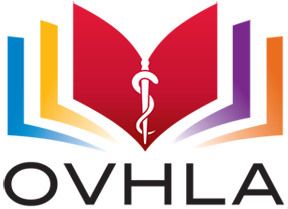December 16, 2020
To: Alex Munter, President and Chief Executive Officer, CHEO
CC: Watson Gale, General Counsel and Chief Privacy Officer, CHEO; Ann Lynch, Senior Vice President Clinical Services and Chief Nursing Executive, CHEO; Joanne Lowe, Vice President Mental Health and Addictions, CHEO; Dr. Ken Farion, Medical Director, Quality and Systems Improvement, CHEO; Christine Kouri, Manager Health Equity & Diversity, CHEO; Ellen Shipman, President, Region 10, RNAO; Karen McCoy, Local 214 Local Coordinator, ONA; Shaun Reid, President of Local 474, OPSEU
RE: Decommissioning of CHEO’s hospital library and the Kaitlin Atkinson Family Resource Library
Dear Mr. Munter,
We are gravely concerned about the recent decision to close CHEO’s hospital library, the Kaitlin Atkinson Family Resource Library, and to dismiss the library staff. Hospital libraries are instrumental for advancing evidence-based practice and effective and safe patient care (1-4), and help to fulfill accreditation standards by providing timely access to research-based evidence (6-7). Library staff and the resources they provide have consistently shown to have a positive impact and high return on investment in health care organizations (1-5,8).
We recognize that CHEO has a close relationship to the University of Ottawa, and perhaps plans to lean more heavily on the University for the provision of evidence to inform clinical practice. We find this logic misguided and problematic, given that the University would only be able to serve affiliated health care professionals (mostly physicians), leaving patients, their families, and the majority of allied health care personnel without access. This would mean that the majority of nurses, technicians, councillors, social workers and most of the mental health staff will no longer have access to the latest medical evidence to inform their practice or decisions. Given the strain the pandemic is putting on our youth’s mental health, the decision to strip mental health workers of their access to a medical library is extremely concerning.
In addition, even with the University of Ottawa Library’s support of affiliated physicians, the University is a broad academic institution dedicated to the needs of many, and as a result does not have the same focus as CHEO’s hospital library, which licences access to specialized pediatric content and provides expert and time-sensitive support for patient care. A dedicated, specialized library within CHEO is better suited to understand and meet the needs of CHEO’s health care staff and patients.
While this closure would be concerning at any time, we find it all the more alarming in the midst of the COVID-19 pandemic, when misinformation abounds in the public sphere and the pace of research has far outpaced clinical staff’s ability to stay informed. Indeed, this is the worst possible time to be shuttering a source of reliable, evidence-based information to both families and health care workers.
We ask that you strongly reconsider these closures, and continue to invest in library staff and resources which provide vital support to the hospital, patients and families.
Sincerely,
Kelly Farrah
President, Ottawa Valley Health Libraries Association (OVHLA)
Francesca Frati
President, Canadian Health Libraries Association (CHLA)
Lance Fox
President, Saskatchewan Health Libraries Association (SHLA)
Kathryn Tippell-Smith
President, Southern Alberta Health Libraries Association (SAHLA)
Tanya Harron
President, Wellington Waterloo Dufferin Health Library Network (WWDHLN)
Jody Nelson
President, Northern Alberta Health Libraries Association (NAHLA)
Pamela Harrison
President, Health Libraries Association of British Columbia (HLABC)
Lisa Battistella
President, Golden Horseshoe Health Libraries Association (GHHLA)
Maureen Babb
President, Manitoba Association of Health Information Providers (MAHIP)
References
- Bartlett, J. C., & Marshall, J. G. (2013). The Value of Library and Information Services in Patient Care: Canadian Results From an International Multisite Study. Journal of the Canadian Health Libraries Association / Journal de l’Association Des Bibliothèques de La Santé Du Canada, 34(3), 138–146. https://doi.org/10.5596/c13-063
- Brettle, A., Maden, M., & Payne, C. (2016). The impact of clinical librarian services on patients and health care organisations. Health Information & Libraries Journal, 33(2), 100–120. https://doi.org/10.1111/hir.12136
- Fratti, F., Oja, L.A., Kleinberg, J. (2020). CHLA Standards for Library and Information Services in Canadian Health & Social Services Institutions. https://www.chla-absc.ca/docs/CHLA_Standards_FINAL_for_website_Dec_12_2020.pdf
- Gard Marshall, G. J., Craft Morgan, J., A. Thompson, C., & L. Wells, A. (2014). Library and information services: Impact on patient care quality. International Journal of Health Care Quality Assurance, 27(8), 672–683. https://doi.org/10.1108/IJHCQA-10-2013-0119
- Hartfiel, N., Sadera, G., Treadway, V., Lawrence, C., & Tudor Edwards, R. (2020). A clinical librarian in a hospital critical care unit may generate a positive return on investment. Health Information & Libraries Journal, n/a(n/a). https://doi.org/10.1111/hir.12332
- Ritchie, A., Gilbert, C., Gaca, M., Siemensma, G., & Taylor, J. (2020). Hospital Librarians’ Contributions to Health Services’ Accreditation: An Account of the Health Libraries for the National Safety and Quality in Health Services Standards (HeLiNS) Research Project, 2016-18. Journal of the Australian Library and Information Association, 69(2), 215–245. https://doi.org/10.1080/24750158.2020.1736791
- Standards—Accreditation Canada’s Programs and HSO’s Standards. (2020). Accreditation Canada. Retrieved December 9, 2020, from https://accreditation.ca/standards/
- Worth every cent and more: An independent assessment of the return on investment of health libraries in Australia. (2013). http://read.alia.org.au/content/worth-every-cent-and-more-independent-assessment-return-investment-health-libraries
